Semester in Central America
Central America is a land of immense environmental and cultural diversity. Lush tropical rainforests, towering volcanoes, steep-sided mountains, and extended coastlines inspire unique cultural expression. The many different Indigenous Mayan communities, the people of mixed European ancestry, the local ticos and chapines, and the expats who have made these countries their home, all invoke an atmosphere of social activism and political engagement.
From the Sierra Madre mountains of interior Guatemala to the tranquility and splendor of Lago Atitlan and her surrounding volcanoes, to the breathtaking coral reefs offshore, Carpe Diem Education takes you to a region that is merging the complexities of socio-political realities with the hope of a more sustainable future.
Where We Travel
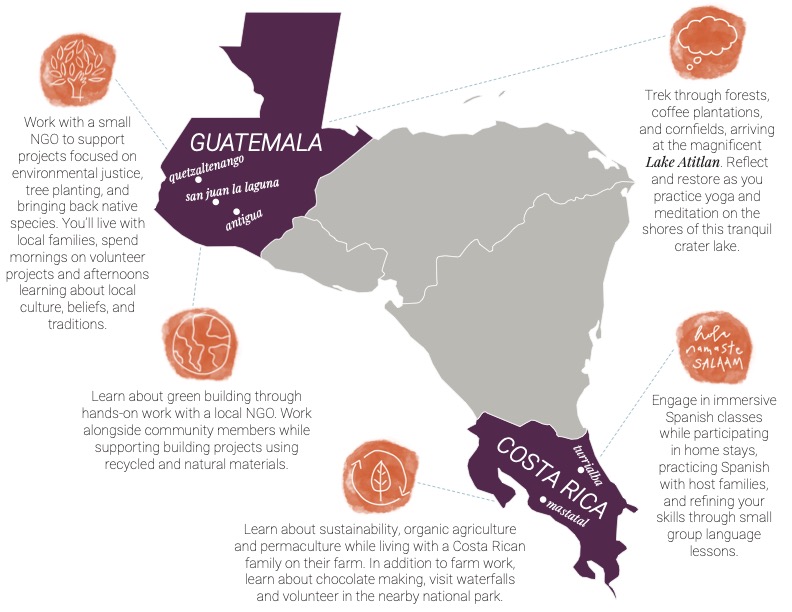
Workshops & Skills
- Sustainable building (long way home + Chad)
- Spanish language (classes, homestays)
- Leadership - student directed travel + LOW
- Guatemalan history/indigenous rights - Xela & Atitlan language schools & service
- Cooking
- Starting a small organization/non-profit
- Social development / group travel
- Yoga and meditation (mindfulness)
- Regenerative agriculture
- Identity & privilege
- Indigenous history (visit archaeological sites)
- Student Directed Travel - organizing transport & housing, researching, budgeting, etc.
- Self-awareness - journaling, sharing in group meetings, mentorship by OEs
Program Details
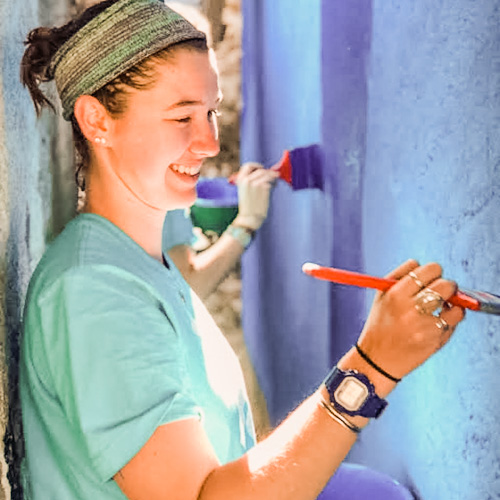
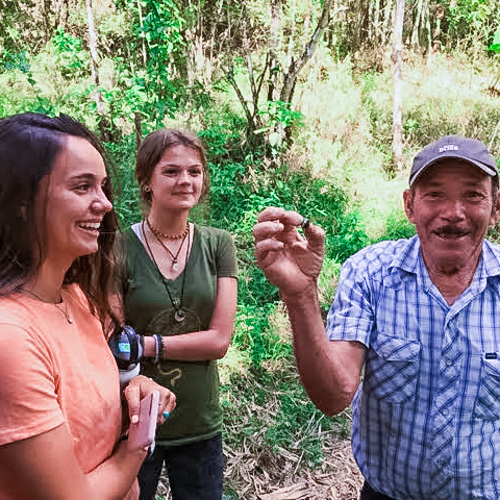

Length
70 days (10 weeks)
Program Dates *
Fall 2025: September 25 - December 4
Spring 2026: February 25 - May 6
Fall 2026: September 24 - December 5
* Dates may fluctuate depending on flight times and availability.
Group Size
2 Overseas Educators and up to 13 students.
Eligibility
Our typical student is between 17-22, though we sometimes work with students slightly outside that range depending on circumstances.
College Credit & Scholarships
Learn more about: College Credit & Scholarships
Language Requirements
None
Cost
2025: $16,500
2026: $16,900
Program tuition includes all food, accommodations, scheduled program activities, and international travel insurance for the duration of the program. International airfare and spending money are extra. International airfare estimated at $1,200 - $1,500.
Climate Nutritional Facts
Being aware of our footprint is a great first step. Learning what to do about it, is ahead. To start mitigating the extra carbon of your trip, students are encouraged to consider eating a low-meat diet, purchasing locally-made green products, using public transit where available, and talking to their local community and politicians about climate change.
During this program students will "inset" much of their carbon through volunteer projects. Students will eat and drink from typically immediately local sources, staying in housing that supports local entrepreneurs and communities, and learning about ways to better the environment that can be taken home.
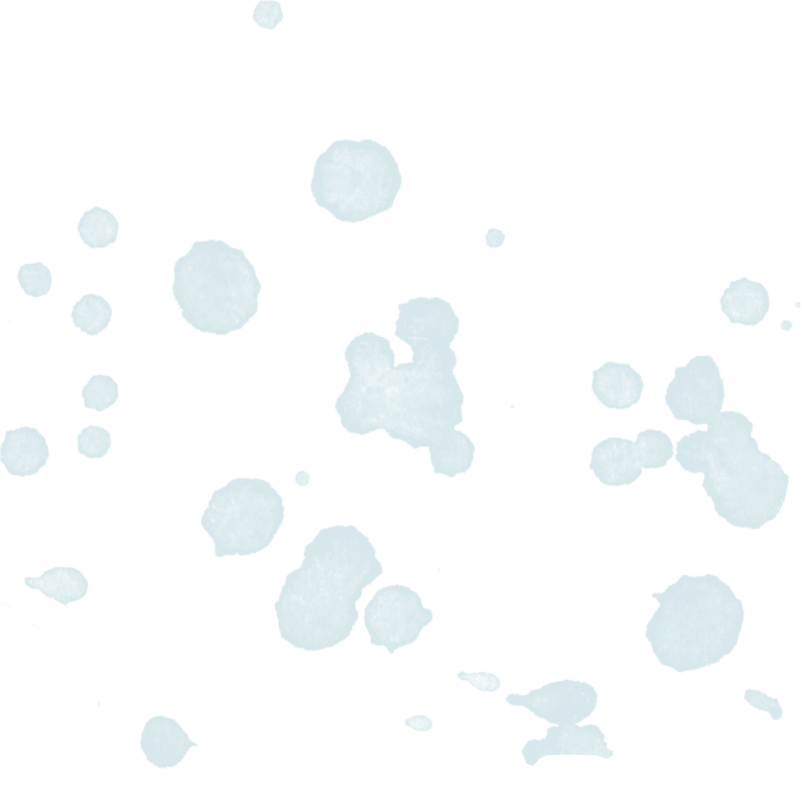
About Our Central America Semester
A land of social, cultural, and economic intricacies, Central America provides a rich environment for in-depth exploration of how communities are engaged in common efforts to live in a more sustainable way.
Beginning in Guatemala, we’ll explore the highland regions near Antigua before diving right in to our study of sustainability. We’ll partner with an NGO focused on green building. We’ll learn about building sustainably and then dive in to hands on work, with full days supporting building projects.
Next we’ll head to Quetzaltenango, to start our study of Spanish. Immersing ourselves in the local culture, we keep our activities varied through discussions with a local Mayan healer, soccer games with our Spanish teachers and locals, discussing regional history, and learning the basics of Guatemalan cooking. We connect with the land through hiking local trails and relaxing in some beautiful hot springs.
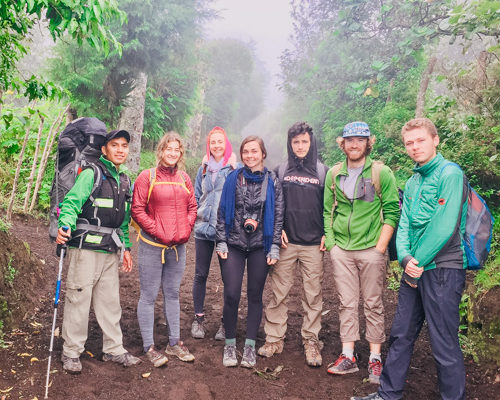
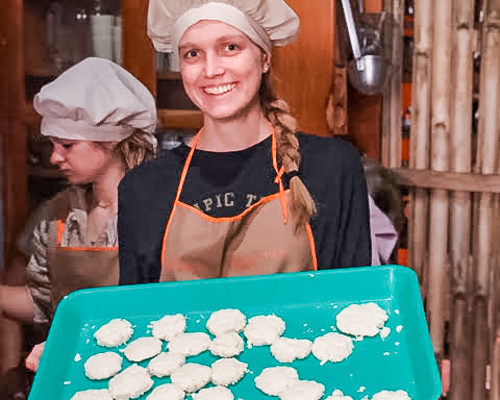
More confident in our Spanish, we now trek through rural villages, pastoral countryside, and coffee plantations, talking with locals along the way, and witnessing the agricultural practices of Mayan communities. Eventually, we descend to the crater lake of Lago Atitlan, surrounded by soaring volcanoes and home to multiple indigenous communities. Working alongside Mayan farmers, we learn about planting and harvesting coffee and participate in efforts to restore local ecosystems. How can agricultural practices coexist with, and even benefit, local ecosystems and native flora and fauna?
Wrapping up our week on the farm, we boat across the lake to a small artisan community on Lake Atitlan. Once again living with homestay families, and immersing ourselves in Spanish classes, we will be improving our ability to listen to the stories of others, and to share our own. We continue with morning Spanish classes with local teachers and in the afternoon dive into learning about the arts for while this community is known. There are opportunities to learn about painting, weaving, natural dyes, and music. You'll also take some group excursions to learn about local honey and coffee production, and visit other communities around the lake.
We celebrate our last week in Guatemala with Student Directed Travel! This is an opportunity for students to practice their new skills in navigating new places, languages and cultures. Working together as a group, with guidance from Overseas Educators, students decide where to go, how to get there, where to stay, what activities they want to do, and how to manage a budget for their plans. This is a great week for students to build leadership skills, confidence, and take more responsibility for their own experience.
As we move on to Costa Rica, we immediately notice the emphasis on environmental conservation and sustainability reflected in the landscapes we see. Over one-quarter of this nation’s land is set aside as protected habitat. We start our time in Costa Rica living on a small family farm. We help with farm work in the mornings and take time in the afternoon to enjoy the beauty of the natural environment through rainforest walks and waterfall hikes. We dive into local culture through language exchange, soccer games, and cooking classes.
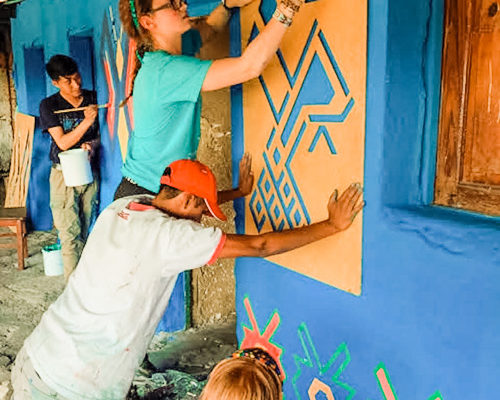
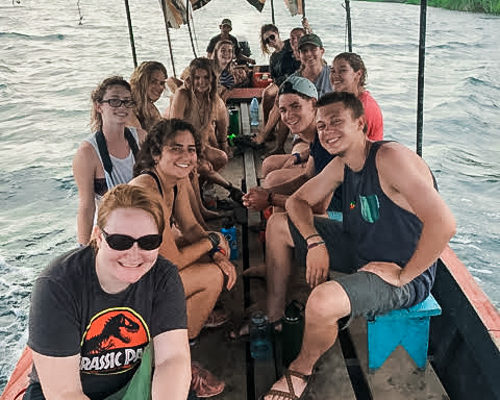
We end by diving into the water ourselves! We’ll first spend a day exploring the natural wonders of Costa Rica by raft, as we navigate the rapids on a guided adventure down the Savegre river. Ending in Uvita, we continue to challenge ourselves to ride the waves with surfing lessons. We also take time to celebrate our experiences and revel in the beauty of the natural world as we wrap up the semester.
Carpe Diem Education’s Central America semester brings you an in-depth look at indigenous culture, sustainable practices, and the relationship between land and people. Through working alongside farmers and builders, intensive Spanish study, and homestay experiences, the journey through Guatemala and Costa Rica provides us a deeper understanding of how local communities are addressing the increasing pressures of climate change and managing resources in a more sustainable way.
Questions We'll Explore:
- How are communities creatively using (and re-using) resources and design methods to live more sustainably?
- How do permaculture and sustainable agricultural practices apply not just to farming but to everyday life?
- What sustainable practices and ways of living are shared or different across the varied towns, cities, and landscapes we visit?
- How does connection to land and place influence relationships and community?
- How are social and environmental justice connected, and how do these relate to culture in Guatemala and Costa Rica?
Testimonials
"An amazing program!! Incredible balance between service, education (Spanish, sustainability, local history/culture), and adventure."
-Jillian,
CDE Student
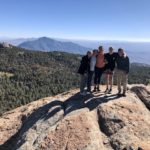
"What I love about this program is how it allows you to gain deep understanding of countries that are so physically close and yet culturally distant from our own."
-Rachel,
Overseas Educator
"We spent 4 weeks doing Spanish classes and homestays and I learned more in those 4 weeks than I ever did in 3 years of high school Spanish."
-Estelle,
CDE Student

